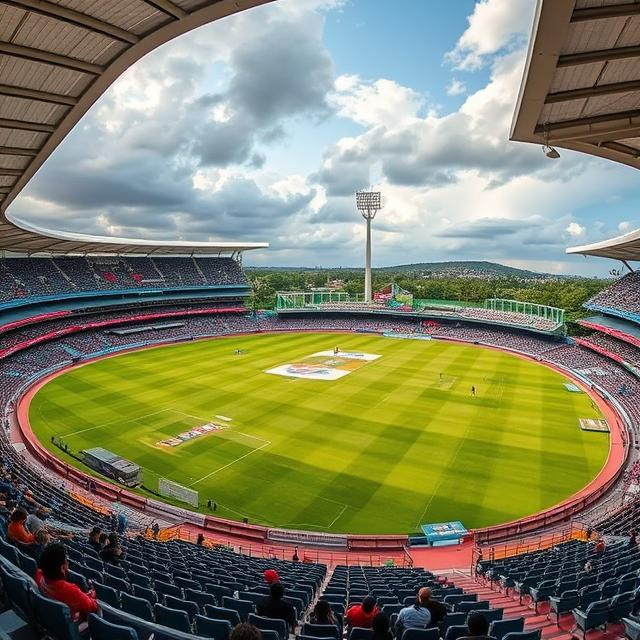Pakistan Time Cricket: A Deep Dive into the Nation’s Passion

Pakistan Time Cricket: A Deep Dive into the Nation’s Passion
Cricket isn’t just a sport in Pakistan; it’s a religion. A national obsession. A vibrant tapestry woven into the very fabric of Pakistani society. This article delves into the profound impact of cricket on Pakistan’s social and cultural landscape, exploring its historical significance, its contemporary relevance, and the unique challenges faced by the nation’s cricketing heroes.
Imagine the electrifying atmosphere of a packed stadium, the roar of the crowd echoing through the night, the suspense hanging heavy in the air as the final ball is bowled. This is Pakistan Time Cricket, a visceral experience that transcends mere sport.
A Nation Divided by the Oval
Cricket’s allure in Pakistan is undeniable. From bustling city streets to remote villages, the sport unites the nation like few other things can. The passion runs deep, often transcending political divides and socioeconomic differences. Family gatherings, office conversations, even casual encounters often revolve around the latest match, the current form of a favourite player, or the strategic brilliance of a captain.
The history of Pakistani cricket is a rollercoaster ride. From early triumphs to crushing defeats, each match becomes a microcosm of the nation’s own complex journey. Iconic victories fuel national pride, while heartbreaking losses ignite deep-seated frustrations.
The Historical Significance of Cricket
Pakistan’s journey with cricket is intertwined with its own history as an independent nation. The sport often served as a potent symbol of national identity during periods of political upheaval and social transformation. The emergence of legendary figures like Imran Khan, Javed Miandad, and Wasim Akram solidified cricket’s place in the national consciousness, transforming it from a pastime to a defining characteristic of Pakistani identity.
Early successes, like victories in major tournaments, served as a beacon of hope and a source of national pride. The memories of those victories resonate even today, deeply embedded in the collective Pakistani consciousness. While setbacks and failures also hold a significant place in this historical narrative, inspiring resilience and unwavering support for the national team.
Cricket and the Cultural Landscape
Pakistan Time Cricket isn’t just about athleticism; it’s a cultural phenomenon. The tradition of vibrant celebrations after victories, the shared grief during losses, the deep-rooted camaraderie between fans, all contribute to a rich tapestry of social interaction. Cricket creates an atmosphere of community that binds people together in a shared passion.
Cricket is woven into the very fabric of Pakistani culture. Think about the popular songs, poems, and stories that often reflect the highs and lows of the game, emphasizing its profound impact on daily life.
The Contemporary Scene: Challenges and Opportunities
Despite the enduring popularity of the sport, Pakistan’s cricket scene faces numerous challenges. From concerns about the governing body’s transparency and efficiency to issues of corruption and controversies related to players, there are concerns about upholding integrity. Sustaining the long-term health of the sport requires tackling these concerns head-on.
On the other hand, Pakistan’s cricketing talent continues to inspire a new generation of young players. The rise of talented players from the domestic circuit provides hope for future success, promising new chapters in the nation’s cricketing history. The nation’s commitment to nurturing young talent and providing them with opportunities for growth is crucial to building a strong foundation for future success.
The Role of Media and Sponsorships
The media plays a vital role in shaping public perception and igniting passions surrounding the game. News channels, newspapers, and social media platforms fuel the excitement leading up to matches, keeping fans hooked on every twist and turn of the game. The impact of media coverage on fan engagement and the overall atmosphere surrounding Pakistan Time Cricket is significant.
Sponsorships also play a crucial part in the growth and development of the game. The revenue generated from sponsorships provides crucial resources for infrastructure development, player training, and administrative support. It helps ensure the continuous evolution and enhancement of the Pakistan cricket scene.
Beyond the Pitch: Social Impact
Beyond the thrill of the game, Pakistan Time Cricket fosters social cohesion. It provides a platform for shared experiences and strengthens social bonds across diverse groups. The shared passion transcends social divides, creating a powerful sense of unity among fans.
The positive influence of cricket on youth development is undeniable. It teaches valuable life lessons like teamwork, discipline, perseverance, and respect. The inspiring stories of past and present cricketers often serve as role models for aspiring athletes.
The Future of Pakistan Time Cricket
Pakistan Time Cricket faces the future with a blend of both optimism and caution. Building on a legacy of fervent passion and unwavering support, the nation can look forward to exciting prospects. The development of youth talent and improving infrastructure will play a crucial role in ensuring a bright future for the game. Maintaining the integrity of the sport through transparent governance will foster a sense of trust and loyalty among fans.
Ultimately, Pakistan Time Cricket is about more than just a game. It’s a reflection of the nation’s heart, a celebration of its diverse culture, and a source of shared joy and pride for millions.
The resounding roars of the crowds, the tears of joy and sorrow, the unwavering dedication of fans, and the sheer passion that defines Pakistan Time Cricket will continue to shape the future of the sport in Pakistan for generations to come.
Will Pakistan cricket reclaim its glory? The answer lies in the hands of the players, the administrators, and the passionate fans who make Pakistan Time Cricket so unique.